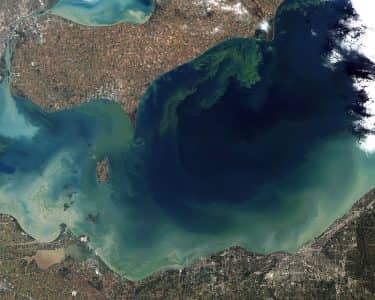Algal Blooms on the Rise in the US - Dispatch Weekly
June 27, 2016 - Reading time: 2 minutes

Algal blooms are on the rise in the US with more and more reports coming in from various parts of the country that these naturally occurring algae are wreaking havoc in local water bodies.
Algal blooms pose health hazards as well as risk to the marine ecosystem and impact the lives of people depending on these ecosystems for livelihood. The increase in algal blooms has been attributed to climate change, increase in wastewater runoff and other environmental issues. While these occur naturally, algal blooms produce toxins that not only hamper marine ecosystems, but can also cause illness in humans and pets. Further, these blooms cause depletion of oxygen in water thereby in turn killing fish.
In a bid to educate people in the US about algal blooms and have the local authorities keep track of harmful algal blooms, the Center for Disease Control and Prevention (CDC) has launched a new website with public information about harmful algae.
It doesn’t take an expert in spotting algal blooms and all you have to do is look for slimy green patches in a water body – something that resembles paint in the water. Chances are that you may spot other colors as well, but there could be cases when you can’t spot them even if they are present in the water. When the blooms get into drinking water, it causes it to have weird odor, often musty or earthy smelling.
If the toxins from these algal blooms are released into the air, they can cause several health issues including coughing or respiratory problems. If the toxin touches your skin, it could cause rashes and if you either end up drinking water from one of the algal bloom infested water body or eat fish from one such river or lake, you can get sick.
Beyond the health hazards are economic losses and reports have shown that algal blooms cause a huge financial hit to the country in health care costs for people and animals that have been exposed. The fishing industry is one of the worst hit with millions of dollars in losses each year. Recreation and tourism industries also suffer owing to water bodies being closed off due to algal blooms.

DW Staff
David Lintott is the Editor-in-Chief, leading our team of talented freelance journalists. He specializes in covering culture, sport, and society. Originally from the decaying seaside town of Eastbourne, he attributes his insightful world-weariness to his roots in this unique setting.

_1.jpg)


